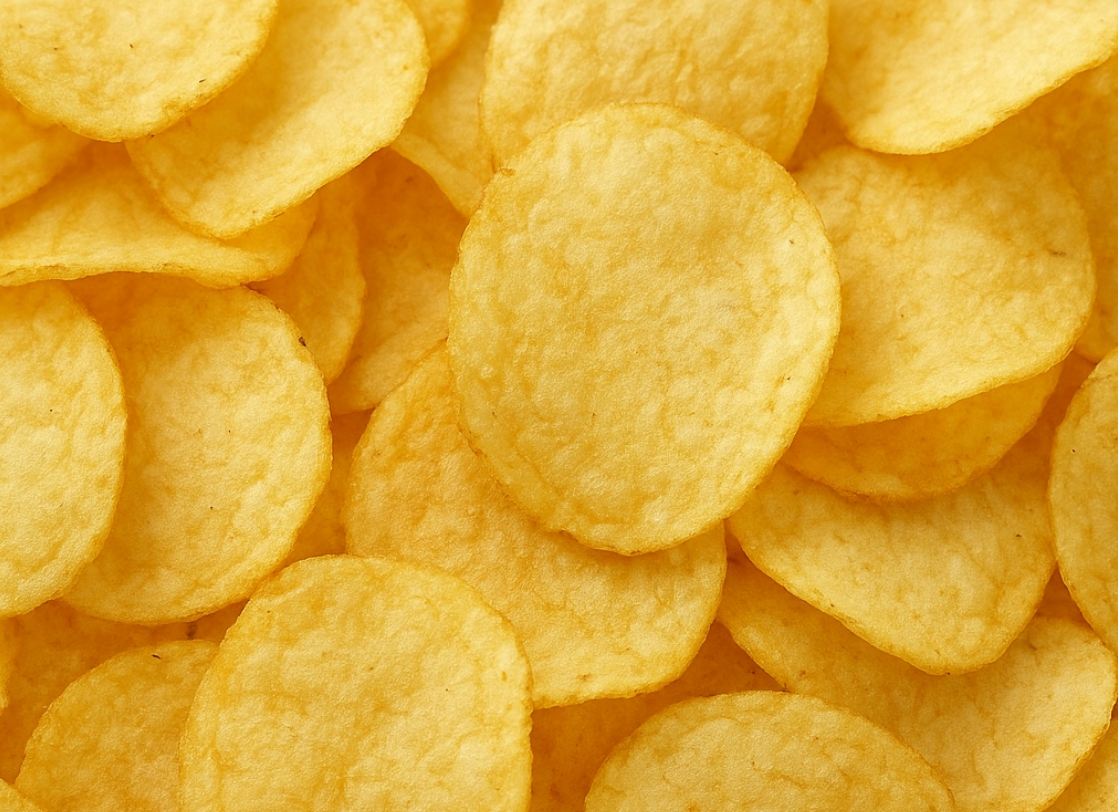1. The Manufacturing Process of Potato Chips
Potato chips are a representative processed food made by thinly slicing potatoes, deep-frying them in oil, and seasoning with salt. In this process, the nutritional composition of the potato changes completely from its original state.
2. Concentrated Carbohydrates and Fat
– Moisture Evaporation: Most of a potato’s weight is water. During the frying process, almost all of this moisture evaporates.
– Increased Carbohydrate Density: The space once occupied by water is filled with oil, and the remaining carbohydrates, fat, and sodium become concentrated in a very small volume. Therefore, when comparing the same weight (e.g., 100g), potato chips have an incomparably higher carbohydrate content and calorie count than boiled potatoes. 100g of boiled potatoes has about 15g of carbs and 70 kcal, while 100g of potato chips has over 50g of carbs and well over 500 kcal.
– High Fat and Sodium: Potato chips are a high-fat food, with more than half of their calories coming from fat, and their sodium content, which is harmful to blood pressure, is also very high.
3. Glycemic Response
Potato chips are a ‘high-carb + high-fat’ combination food made from frying high-GI potatoes. This can cause ‘delayed hyperglycemia,’ where blood sugar spikes unpredictably several hours after eating, making blood sugar management very difficult.
Summary: Contrary to their thin image, potato chips are a food in which carbohydrates, fat, and calories are highly concentrated due to the removal of water. They are incomparably more harmful to blood sugar and weight management than boiled potatoes and must be avoided by people with diabetes.


Leave a Reply